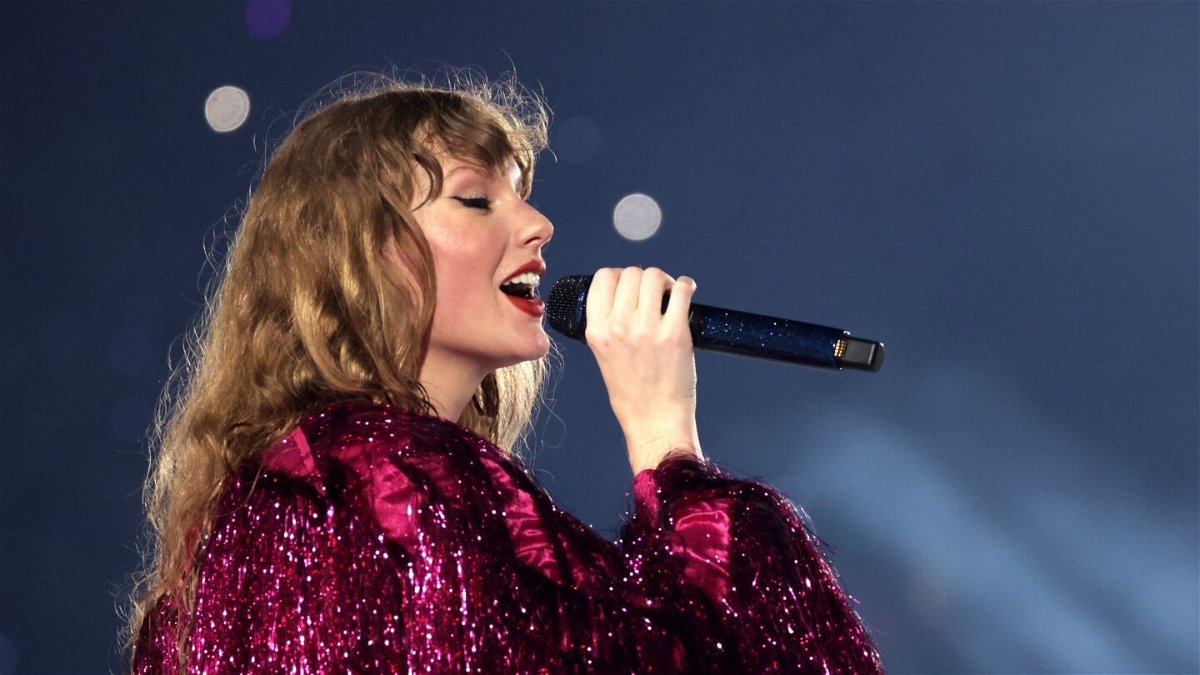Some people hate Taylor Swift. Some people love her. I just don’t get her.

Taylor Swift performs at the National Stadium on March 02
(CNN) — I just don’t get Taylor Swift. There, I said it. (DISCLAIMER: I do not dislike her at all. She seems nice and I wish her all the happiness in the world. Since she has become a political firebrand as of late, I must also note that I speak only of her music and her artistic career.)
It’s freeing to just … not care about something, isn’t it? When friends start to wax poetic about the Eras Tour or their favorite Taylor Swift song, I listen politely as if they were talking about professional darts or French cinema, and a feeling of peace washes over me.
I do not need to love things, I think to myself. I do not need to hate them, either. I can simply watch them pass by like a leaf borne along a river’s current and say, “Well, that certainly is a thing!”
Granted, it is a lot harder when that thing is, by all indications, specifically made for you to enjoy.
While Taylor Swift can appeal to anyone, there is real data showing what a single peek at an Eras Tour crowd or a simple walk outside can tell you: Swifties are most likely to be White suburban millennial women like me. Minds much more qualified than mine have written about the tension between Swift’s position as a “voice of a generation” and how much that voice is or isn’t speaking for listeners of color. That’s a different conversation worth having, but it’s not the one I’m getting at here.
What makes me itchy is the constant framing of Taylor Swift’s music among my peers (or at least my census-designated demographic) as an unassailable communion of girl-and-womanhood: A favorable review of “The Tortured Poets Department” in The Spectator calls Swift “the tortured voice of millennials.” On a recent episode of BBC NewsNight, author Kat McKenna said the “uniqueness of Taylor Swift is that she speaks for an audience that is not always spoken for.”
While I don’t begrudge people that kind of connection,there’s only so many times you can hear lyrics from “Cardigan” or “Cruel Summer” invoked like prayers before you start to feel like there’s something wrong with you.
You kept me like a secret, but I kept you like an oath.
You showed me colors you know I can’t see with anyone else.
Great lines! Beautiful lines. To many fans, such stanzas are life-affirming poetry or, at the very least, quotable enough to adorn shirts and throw pillows and Stanley cups as crystallizations of their own identity.
But are they truly so unique? I have never gotten something out of a Taylor Swift song about love, loss, heartbreak, revenge, shame or self-actualization that I couldn’t have gotten from dozens of other artists. It honestly feels like I missed a day in White woman classwhen they explained, in detail, all of the ley lines of feminine kinship that are supposed to connect our paths with hers.
Again, I respect the Taylor Swift lovers. I have seen, firsthand, thousands of women at the starting gate of a novelty 10k race belting out “You Belong With Me” at the top of their lungs at 4:15am. From inside the cocoon of my noise-cancelling headphones it looked joyous and fun, and who in the world would find fault with that?
Maybe that’s why the whole Not-Caring-About-Taylor-Swift thing stings. It does feel like I’m missing out on something. It does feel like the cogs of my life, and maybe even my identity, would be slightly more lubricated if I could eke out a single independent thought about Taylor Swift that wasn’t “She seems like a suitable role model!” or “I really admire her commitment to good bangs!”
(If you think this apathy comes from a place of snobbery, ha, you are wrong! I do not have good taste in music. My most listened-to Spotify tracks are Spanish gospel hymns and stuff with names like “soothing 438 mHz tone therapy for very delicate people.”)
Until recently, admitting to not enjoying Taylor Swift’s music was a bizarrely polarizing statement. Said in the wrong circles, even such a mild admission could get you branded a hater, a misogynist, a contrarian bore or one of those adult women who still plays the “I’m not like other girls” card.
That’s not an overstatement. The Cut recently published a piece by a woman who ended a relationship with a friend who didn’t like Taylor Swift. More alarmingly, Paste Magazine elected not to byline its critical review of “Poets” because, according to an editor’s note the publication posted on X, a review of her 2019 album “Lover” resulted in the writer receiving “threats of violence from readers who disagreed with the work.” While these are extremes, there is always some anxiety in admitting you don’t care about something you seem expected to care deeply about.
Because she is so popular and ubiquitous — her highly public romance with Kansas City Chiefs player Travis Kelce has catapulted the duo into stratospheric new heights of fame — Swift is often pulled into larger cultural and political conversations. This is not one of those conversations. This is just about her music, and the fans that identify with her. Both parties have my respect, but will unfortunately never have my understanding.
If you don’t love Taylor Swift, if you don’t hate her; if she is simply not something that affects your life whatsoever, it’s probably safe to come out now. Go, take your apathy, and be free.
The-CNN-Wire
™ & © 2024 Cable News Network, Inc., a Warner Bros. Discovery Company. All rights reserved.